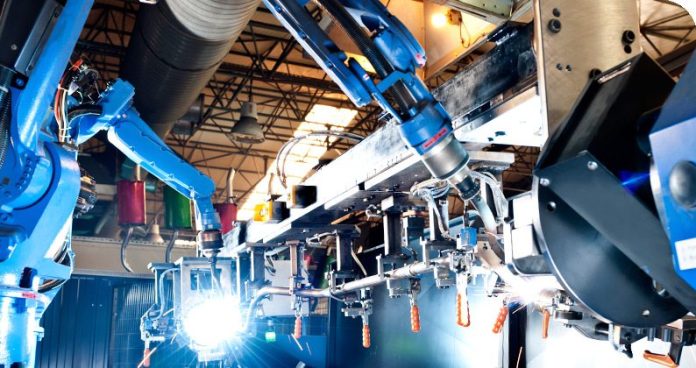China’s government selected 97 smart manufacturing projects last year
China plans to expand its demonstration program for smart manufacturing by adding about 100 pilot projects during 2018, Chinese press reported. According to the reports, the Chinese government is making additional efforts to implement smart manufacturing projects in sectors including raw materials, equipment, consumer goods and electronics.
The smart manufacturing pilot program initially started in 2015 as a measure to promote intelligent manufacturing. The government selected more than 60 projects in 2016 and 97 projects in 2017.
According to a smart manufacturing plan for the 2016-2020 period, China will improve the foundation and supporting capability of its manufacturing base and work to realize the digitization of major fields in the traditional manufacturing sectors by 2020.
China’s smart manufacturing sector will see a compound growth rate of about 20% in the 2016-2020 period, and the annual output of the sector will exceed CNY 3 trillion ($473 billion), according to a report from CIConsulting, a Guangdong-based research institution.
Chinese and foreign firms are also putting efforts for the development of smart manufacturing initiatives in the Asian country.
In December last year, Huawei, together with several industry partners, have established the Wireless Connected Factory Special Interest Group (SIG) to focus on manufacturing use cases that can be supported by 5G.
Huawei said the new group and facility will focus on the field of smart manufacturing to conduct further research and promote extensive applications of 5G communication technologies in Industry 4.0.
Subscribe now to get the daily newsletter from RCR Wireless News
A spokesperson for Huawei told Enterprise IoT Insights that Huawei X Labs and its partners are focusing on four research priorities, namely cloud-based programmable logic controllers (PLC), wireless industrial cameras, wireless controlled automated guided vehicles (AGV), and industrial wearables such as industrial AR glasses.
“Our vision is [to] find out new wireless applications or use cases in smart manufacturing before 5G coming. Huawei can provide wireless application scenario laboratory to support the joint development of SIG members and integrated verification,” the spokesperson said.
In January, German company Siemens unveiled plans to build an ‘Industry 4.0’ innovation center in China. The smart manufacturing center, which will be located in Taiyuan, capital of north China’s Shanxi Province, will be the result of an agreement between Siemens PLM Software Company and Shanxi Transformation and Comprehensive Reform Demonstration Zone.
According to the plan, Siemens will provide research and development for Chinese manufacturers through the smart manufacturing innovation center as Shanxi pushes forward digitalization of its companies.
Last year, Siemens said it would work with the Chinese government authorities and research institutions on a new robotics center in the country. The company currently employs around 4,500 scientists and engineers in China.
Manufacturing and robotics are areas which the Chinese government is focusing under the framework of its “Made in China 2025” initiative.

